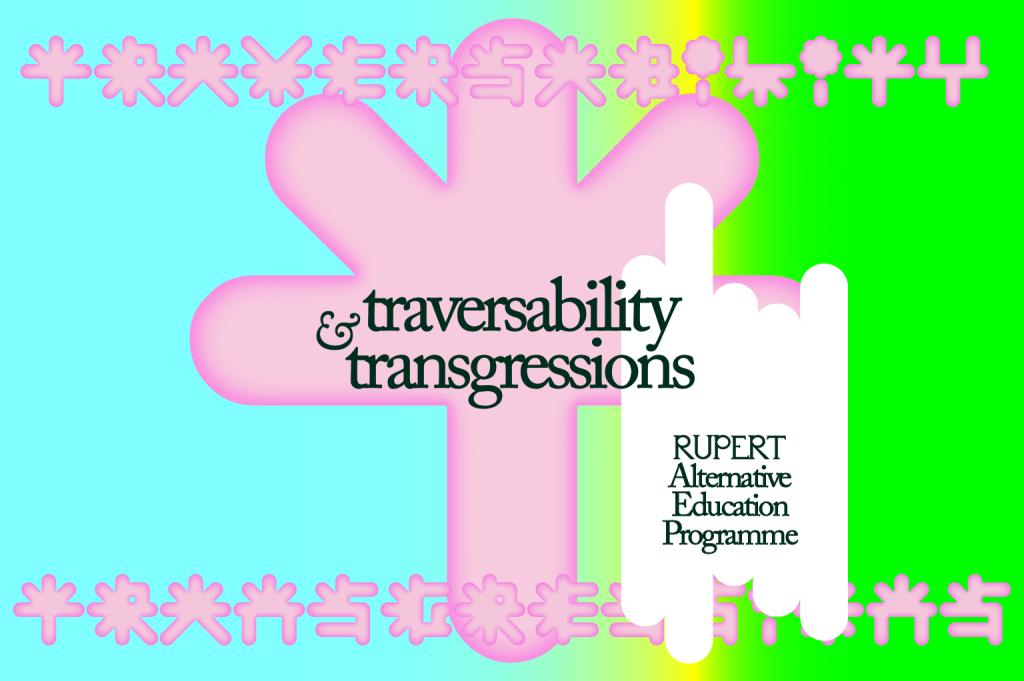
In 2023, Rupert’s Alternative Education Programme enters a new cycle that will be guided by an open-ended fusion of thematic trajectories. The keywords that will help to crystalise these trajectories are transgressions and traversability. Both keywords are starting points, stemming from our findings during the thematic years of Magic and Rituals and Interdependence and Care. These keywords will function as guiding principles or referential points for further investigations, not as defining features. The fusion of thematic trajectories along with an evolving methodological framework will be a pivotal moment in reconfiguring the programme into an interplay between educational infrastructure, decentralised knowledge exchange and artistic production.
Traversability is the potentiality to move through or be passed, traversed or connected. It signifies openness and willingness to change but simultaneously reminds us all movements leave traces. Traversability allows a multitude of subjectivities to emerge, in turn creating a multitude of worlds to be traversed. Structurally, traversability allows Rupert’s programmes to connect and overlap more easily, allowing boundaries to blur while maintaining their distinctiveness. Conceptually, traversability is influenced (among other things) by thinkers like Maria Lugones and Gloria Anzaldúa. It signifies the being and moving in-between cultures, identities and worlds. Combining academic knowledge and personal experiences as ‘the Other’ with poetic undertones, these thinkers and their peers critically and playfully explored the vibrant yet difficult liminality of being. Traversability is an intricate interplay between potentiality and becoming; it is a moment of shimmering uncertainty, where everything feels almost possible.
Transgressions, on other hand, are continuous efforts to examine and probe into the limitations of the permissible. They take the shape of defiant bursts or slow-burning efforts, seeking to reconfigure unjust worlds. During these moments, transgressions often veer into territories of danger, like an alchemist (as described by Jason Mohaghegh) who tests new potions for eternal life on themselves, only to be left blinded—actualising through risky endeavours and the temptation of high rewards. Structurally, transgressions allow putting institutional infrastructures under scrutiny, firmly remaining in the cracks of centralised governance. Conceptually (among other things), transgressions can be traced in a phenomenon like a black technical object, as theorised by Ramon Amaro, where marginalised finds itself under threat of (digital) erasure. Transgressions, in this case, mean resistance to both the erasure and falsifiable hope of a clean way out. Transgressions are always murky and deeply embedded into the vices of the unjust.
Both of these keywords are outlines, a sketch scribbled with a hopeful hand to evoke some sense of communality. When exercised, traversability and transgression deeply favour attentiveness towards the non-conforming, peripheral and under-recognised. They reach for knowledge beyond the given world, searching for the unimaginable instead of the permissible.